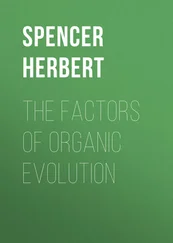[27]Sir Charles Lyell is no longer to be classed among Uniformitarians. With rare and admirable candour he has, since this was written, yielded to the arguments of Mr. Darwin.
BAIN ON THE EMOTIONS AND THE WILL.
Table of Contents
[ First published in The Medico-Chirurgical Review for January, 1860.]
After the controversy between the Neptunists and the Vulcanists had been long carried on without definite results, there came a reaction against all speculative geology. Reasoning without adequate data having led to nothing, inquirers went into the opposite extreme, and confining themselves wholly to collecting data, relinquished reasoning. The Geological Society of London was formed with the express object of accumulating evidence; for many years hypotheses were forbidden at its meetings: and only of late have attempts to organize the mass of observations into consistent theory been tolerated.
This reaction and subsequent re-reaction, well illustrate the recent history of English thought in general. The time was when our countrymen speculated, certainly to as great an extent as any other people, on all those high questions which present themselves to the human intellect; and, indeed, a glance at the systems of philosophy that are or have been current on the Continent, suffices to show how much other nations owe to the discoveries of our ancestors. For a generation or two, however, these more abstract subjects have fallen into neglect; and, among those who plume themselves on being "practical," even into contempt. Partly, perhaps, a natural accompaniment of our rapid material growth, this intellectual phase has been in great measure due to the exhaustion of argument, and the necessity for better data. Not so much with a conscious recognition of the end to be subserved, as from an unconscious subordination to that rhythm traceable in social changes as in other things, an era of theorizing without observing, has been followed by an era of observing without theorizing. During this long-continued devotion to concrete science, an immense quantity of raw material for abstract science has been accumulated; and now there is obviously commencing a period in which this accumulated raw material will be organized into consistent theory. On all sides—equally in the inorganic sciences, in the science of life, and in the science of society—we may note the tendency to pass from the superficial and empirical to the more profound and rational.
In Psychology this change is conspicuous. The facts brought to light by anatomists and physiologists during the last fifty years, are at length being used towards the interpretation of this highest class of biological phenomena; and already there is promise of a great advance. The work of Mr. Alexander Bain, of which the second volume has been recently issued, may be regarded as especially characteristic of the transition. It gives us, in orderly arrangement, the great mass of evidence supplied by modern science towards the building-up of a coherent system of mental philosophy. It is not in itself a system of mental philosophy, properly so called; but a classified collection of materials for such a system, presented with that method and insight which scientific discipline generates, and accompanied with occasional passages of an analytical character. It is indeed that which it in the main professes to be—a natural history of the mind. Were we to say that the researches of the naturalist who collects and dissects and describes species, bear the same relation to the researches of the comparative anatomist tracing out the laws of organization, which Mr. Bain's labours bear to the labours of the abstract psychologist, we should be going somewhat too far; for Mr. Bain's work is not wholly descriptive. Still, however, such an analogy conveys the best general conception of what he has done; and serves most clearly to indicate its needfulness. For as, before there can be made anything like true generalizations respecting the classification of organisms and the laws of organization, there must be an extensive accumulation of the facts presented in numerous organic bodies; so, without a tolerably-complete delineation of mental phenomena of all orders, there can scarcely arise any adequate theory of mind. Until recently, mental science has been pursued much as physical science was pursued by the ancients; not by drawing conclusions from observations and experiments, but by drawing them from arbitrary a priori assumptions. This course, long since abandoned in the one case with immense advantage, is gradually being abandoned in the other; and the treatment of Psychology as a division of natural history, shows that the abandonment will soon be complete.
Estimated as a means to higher results, Mr. Bain's work is of great value. Of its kind it is the most scientific in conception, the most catholic in spirit, and the most complete in execution. Besides delineating the various classes of mental phenomena as seen under that stronger light thrown on them by modern science, it includes in the picture much which previous writers had omitted—partly from prejudice, partly from ignorance. We refer more especially to the participation of bodily organs in mental changes; and the addition to the primary mental changes, of those many secondary ones which the actions of the bodily organs generate. Mr. Bain has, we believe, been the first to appreciate the importance of this element in our states of consciousness; and it is one of his merits that he shows how constant and large an element it is. Further, the relations of voluntary and involuntary movements are elucidated in a way that was not possible to writers unacquainted with the modern doctrine of reflex action. And beyond this, some of the analytical passages that here and there occur, contain important ideas.
Valuable, however, as is Mr. Bain's work, we regard it as essentially transitional. It presents in a digested form the results of a period of observation; adds to these results many well-delineated facts collected by himself; arranges new and old materials with that more scientific method which the discipline of our times has fostered; and so prepares the way for better generalizations. But almost of necessity its classifications and conclusions are provisional. In the growth of each science, not only is correct observation needful for the formation of true theory; but true theory is needful as a preliminary to correct observation. Of course we do not intend this assertion to be taken literally; but as a strong expression of the fact that the two must advance hand in hand. The first crude theory or rough classification, based on very slight knowledge of the phenomena, is requisite as a means of reducing the phenomena to some kind of order; and as supplying a conception with which fresh phenomena may be compared, and their agreement or disagreement noted. Incongruities being by and by made manifest by wider examination of cases, there comes such modification of the theory as brings it into a nearer correspondence with the evidence. This reacts to the further advance of observation. More extensive and complete observation brings additional corrections of theory; and so on till the truth is reached. In mental science, the systematic collection of facts having but recently commenced, it is not to be expected that the results can be at once rightly formulated. All that may be looked for are approximate generalizations which will presently serve for the better directing of inquiry. Hence, even were it not now possible to say in what way it does so, we might be tolerably certain that Mr. Bain's work bears the stamp of the inchoate state of Psychology.
We think, however, that it will not be difficult to find in what respects its organization is provisional; and at the same time to show what must be the nature of a more complete organization. We propose here to attempt this: illustrating our positions from his recently-issued second volume.
Читать дальше












